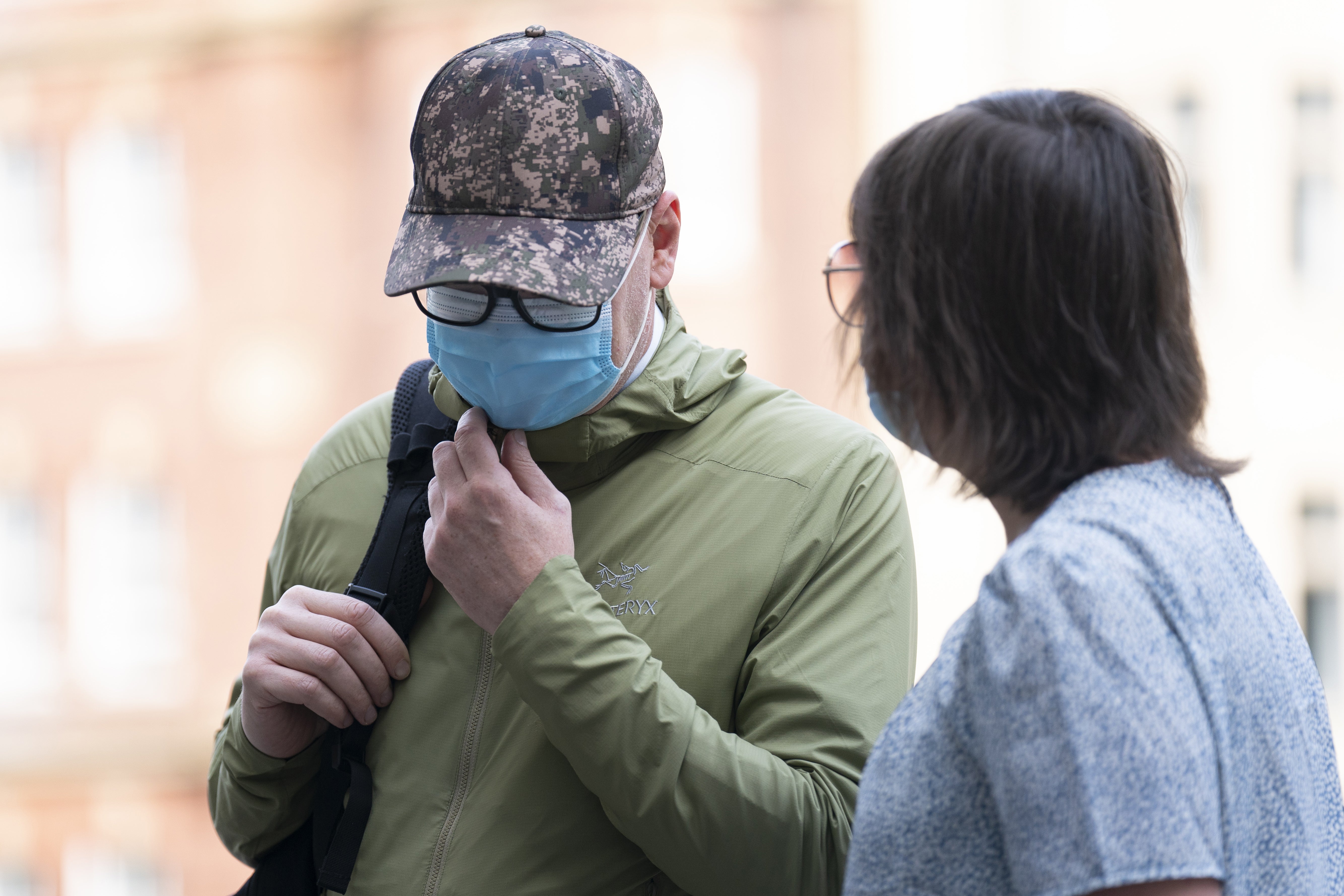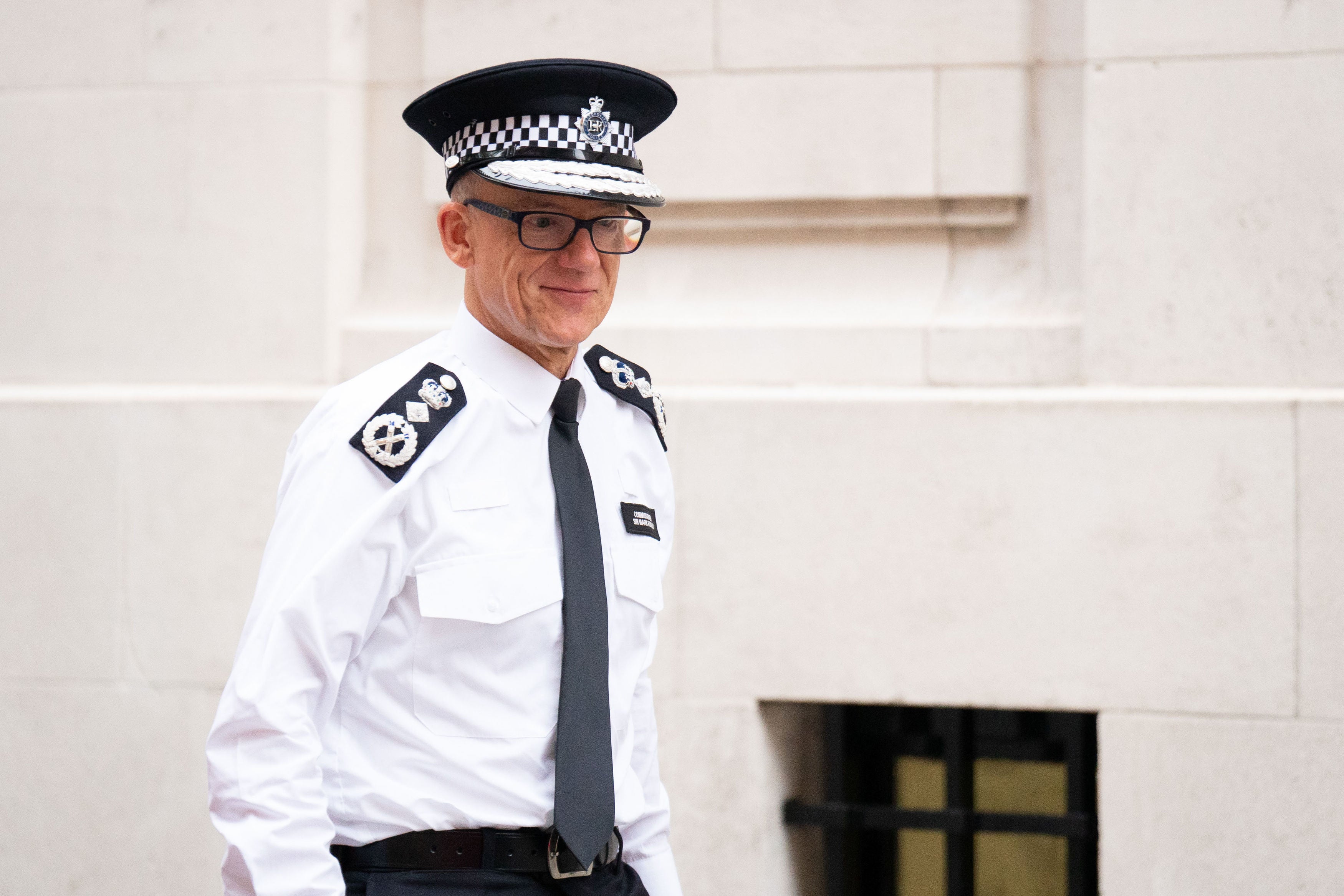Wayne Couzens’ Met Police colleagues sentenced over ‘sickening’ WhatsApp messages
The pair were subsequently bailed by the judge following a High Court appeal into their sentence

Two Metropolitan Police officers have been given jail sentences for racist, misogynist, sexist, homophobic, Islamophobic and ableist messages shared in a WhatsApp group containing murderer Wayne Couzens.
District Judge Sarah Turnock jailed Cobban and Borders for 12 weeks on Wednesday, saying she could not think of “more grossly offensive messages”, before granting them bail to allow them to appeal their sentence at the High Court.
Serving PC Jonathon Cobban, 35, and former officer Joel Borders, 45, had denied charges of sending grossly offensive messages.
Westminster Magistrates’ Court heard how they joked about raping a female colleague, talked about tasering children and people with disabilities, and displayed racist views in the group in 2019.
Cobban was found guilty in September of three counts of sending grossly offensive messages and acquitted of two, while Borders was convicted on all five charges he faced.
Their co-defendant, PC William Neville, 34, was acquitted of two counts of the same charge.
“They encapsulated the full range of prejudiced views, racism, misogyny, ableism and homophobia,” the judge said.
“There was no intention on the part of the defendants to cause any harm to the persons to whom these messages relate or the minor groups of society who are undoubtedly affected by these messages,” she continued.
“The persons to whom these messages relate will undoubtedly [have] been caused great distress by knowing police officers find it funny to joke about them in such a deeply offensive manner.”
It comes after a damning report found hundreds if not thousands of police officers who should have failed vetting checks may still be working in England and Wales.
HM Inspectorate of Constabulary’s latest report concluded a culture of misogyny and predatory behaviour towards members of the public, female police officers and staff is also pervasive in many forces.
Inspectors found police were not adopting high enough standards when screening potential officers and warned it was too easy for the “wrong people” to join or remain in the force.
Cobban and Borders’s defence lawyers attempted to have the case dismissed in July, arguing that the messages did not meet the legal definition of “grossly offensive” because they were sent in a private chat group where “no one was offended and they were not targeted at anyone”.
District Judge Sarah Turnock refused the application, saying the messages were capable of being grossly offensive under the meaning of the Communications Act 2003.
Giving her verdicts at City of London Magistrates’ Court, she called their messages “sickening” and “disgusting”.

The Metropolitan Police said it would “progress internal misconduct proceedings without delay” for Cobban and PC Neville because they could not start while the court case was ongoing.
Commander Jon Savell added: “The behaviour of these officers is despicable and I condemn them for sending such grossly offensive and repulsive messages. It is staggering that they regard this language as defensible.
“We expect our officers to have the highest standards of conduct. We are determined to rid this organisation of those who corrupt its integrity and are increasing our efforts to do that more quickly. As a result, we may well see more cases emerging, as we leave no stone unturned in tackling offensive behaviour.
“I am deeply sorry these officers have let down the public, and their Met colleagues.”

The force’s new commissioner, Sir Mark Rowley, has committed to restoring public trust and has announced plans to recruit more than 100 officers to its Directorate of Professional Standards.
Rosemary Ainslie, of the Crown Prosecution Service, said it would prosecute similar offences against police officers “robustly” when in the public interest.
“It is incomprehensible that serving police officers could think it was right to share these kinds of grossly offensive messages with others,” she added.
“They were not just shocking or disturbing banter, but they amounted to criminal offences.”
While in the Civil Nuclear Constabulary alongside Couzens, Cobban worked in its firearms training unit. While there he volunteered to become its “race and diversity custodian” and was registered with a network that provided support to police with protected characteristics.
Subscribe to Independent Premium to bookmark this article
Want to bookmark your favourite articles and stories to read or reference later? Start your Independent Premium subscription today.



